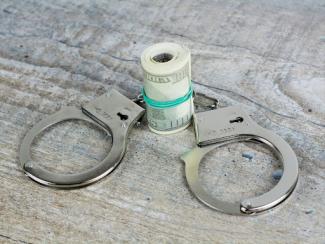
As long as cash bail has existed, people have organized to pay for their loved ones’ freedom. Today, technology and widespread reach expand the legacy of organizations like the ACLU’s nationalized bail fund in the 1920s and beyond.
But we can trace the origins even farther back than that.
While bail has been compared to the post-Civil War Black Codes, the act of paying bail sits ideologically beside some ancestors’ choice to purchase emancipation.
The tension of having to participate in a human market while working to abolish it often landed on the human costs of these systems.
Though none of us are free in an anti-Black world, living outside jail walls or holding onto freedom papers has saved lives. Some have also rightfully stolen that right throughout history, from plantation escapes to prison breaks.
And while buying freedom technically feeds money back into these systems, it also reinforces their illegitimacy.
These small tastes of freedom accumulate as collective practices for a fully liberated future. It’s why, like in Georgia with Stop Cop City, bail funds are identified as radical community care and criminalized.
Bail funds follow in the footsteps of emancipation efforts by insisting that those we free from the criminal legal system are loved and valued, not disposable. We refuse to forget, and we refuse to give up.